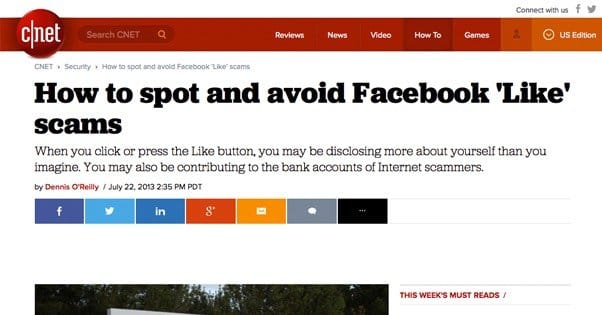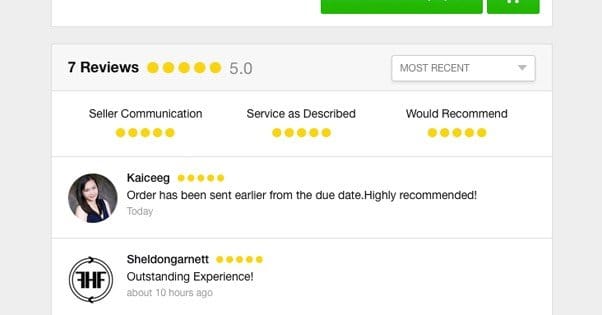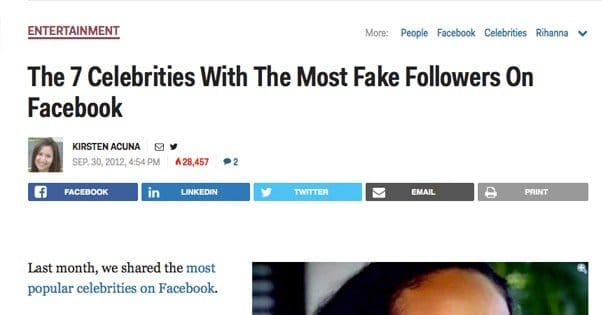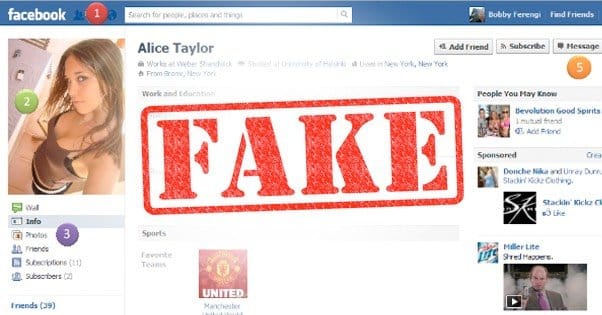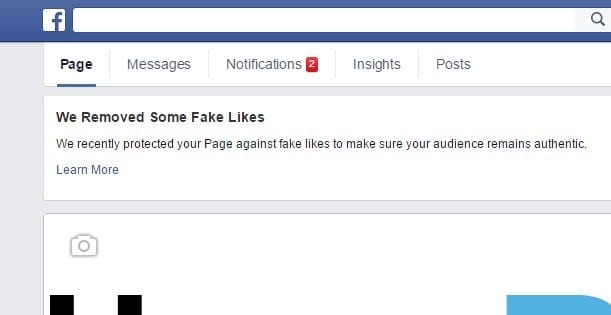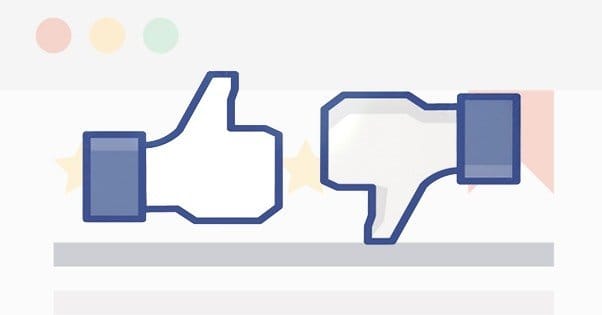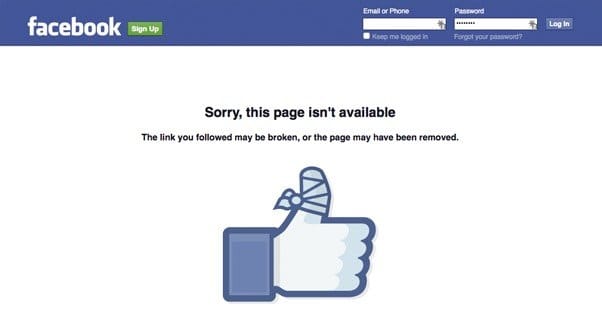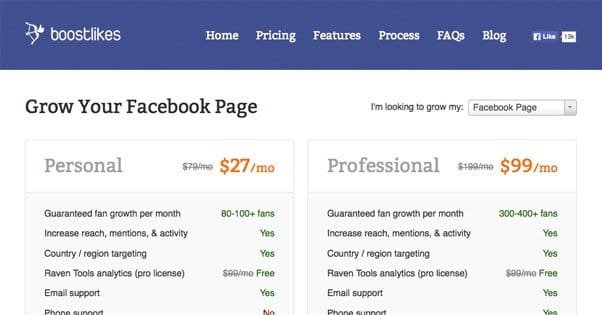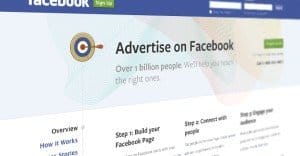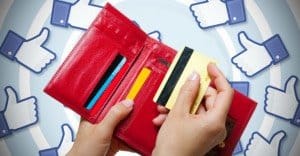 Written by ContentPowered.com
Written by ContentPowered.com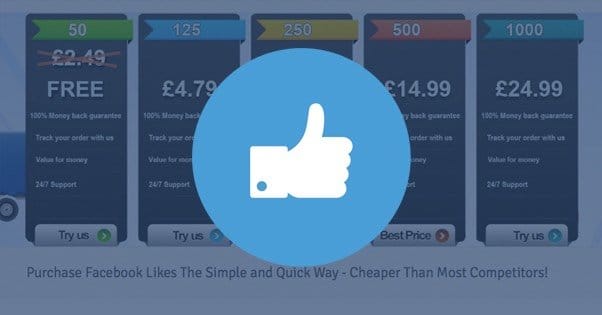
One of the most common concerns with purchasing anything online is safety and security. It’s no different if you’re buying a computer from Newegg, a tube of toothpaste from Amazon or a piece of software from Steam. Anything you buy, any transaction of money for a good or service, needs to be accompanied with certain assurances.
In the case of buying Facebook likes, the concerns become very specific. Will I get these likes as promised? Will my information be safe with the seller? Will they use my information in a way I don’t endorse? Will my reputation be harmed by the purchase of followers? Will my account be banned if I’m discovered? Are the likes from valid users? Will my account be hacked? Can Facebook sue me?
The answers to some of these questions may surprise you. Others are more nuanced than you may believe. Let’s go through them each one by one.
Will You Get Your Likes?
This is a valid first question.
In general, yes, you’ll get your likes, regardless of where you’re buying them. You’ll hear this a lot when I answer these questions, by the way; conditional statements. If you don’t trust the seller, don’t buy from them. That’s a pretty simple guideline to follow, I think.
A related question might be, “will I get all of the likes I pay for?” That’s a little harder to answer. In general, if a site is trying to sell you 1,000 likes, they’re going to deliver around 1,000 likes. Some of them will run ads and keep track of the followers you get from those ads, and cut the ads off at 1,000. Others will send users at you until your follower count has increased by 1,000, which might mean you only got 950 likes from their service and 50 from your own efforts. Still others will over-shoot in an attempt to please you and get you to buy more, and you might end up with 1,100 from them. You never know what you’re getting, for sure, unless the terms of service for the seller clearly state it.
Very, very rarely you will come across a site or user on Fiverr, or some black hat forum, who promises likes for a cheap rate. Once you send them money, they disappear; complete communications blackout. Often, these people pop up time and again under different names and service names, but they’re pretty easy to identify. I’d just recommend never buying likes from someone who doesn’t have trustworthy reviews and recommendations.
In general, you should avoid the networks that only deal in small quantities of likes, or the sites that promise a certain number of likes in a short amount of time. Ads take time to set up and run, and legitimate likes take time to come in. If a site is guaranteeing you 10,000 likes in 24 hours, it’s not reasonable.
Is Your Information Safe?
This is another valid question, and again, it comes down to the quality of the seller. A valid merchant running ads has a vested interest in keeping your information safe; they don’t want their reputation destroyed, which is the least of what would happen in a data breach. More likely, legal action could be taken against them, and they don’t want that either. They have a very good set of reasons to keep your data secure.
Now, the low quality sellers might just be bad at what they do. They might be using stock, out of the box software to manage their payments, and it might not be up to date. Laziness has caused more than one security breach at major companies, small businesses dealing with digital goods can suffer from the same fate.
And, just like with delivery, there’s always the bottom of the barrel, the users who run a “business” where they get just enough of your information to phish your account out from under you. In general, legitimate sellers aren’t going to need your username and password, or direct financial details; they’ll operate just like any other business.
How Will They Use Your Information?
What information do you have to give a seller of likes?
Most of the time, the only things you need to specify are 1) how many likes you want and 2) what page you want them sent to.
Sometimes, the seller might ask you to go in and generate code for a like box for them, because they run that like box on other sites as an ad. They’ll never need your username or password, or financial details. When they want to bill you, they do just that; send you a bill.
Therefore, the only information of yours they have should be publicly available information. The only private information in the transaction is the fact that you’re buying likes from a seller. Generally, this can be taken the wrong way, so many buyers don’t want to be exposed. Of course, it’s then in the interest of the seller to not expose their clients list, so it really all depends.
For a legitimate like seller, a company that runs ads in your stead, information security is going to be important. They also have the benefit of using third party payment processors like Paypal, so they don’t have to store your payment information. There’s really no room for malicious use of information you give, because you don’t need to give much at all.
Are the Likes Valid?
This is perhaps the biggest and most important question to ask. There are three types of likes you can get on Facebook, and all three crop up through Facebook’s page like objective ads just as much as they do through third party sellers and through organic growth.
The first type is the most valuable, the highly interested and engaged users. These people want to see what you post, they want to pay attention to your business, they want to buy your products, and maybe they already have purchased and are following for support and announcements about deals and new versions. It’s a mouthful, but they’re just the best kind of followers to have. They see your messages most often, they comment and share them, and they’re prone to converting.
The second type are less valuable, but they make up the bulk of your followers, and the bulk of Facebook’s usership in general. They are the people who aren’t as interested or engaged with what you do, and maybe don’t care at all. They came up a lot back when Facebook had a like gate; people who followed your page to enter a contest, but otherwise couldn’t care less about who you are or what you sell. They’re going into it immune to your marketing, because they know they’re going to spend nothing on your business.
The third type are the worst, and they’re the fake followers. These tend to be either clickfarm workers from third world nations, or software-created bot accounts. Obviously, they aren’t very useful to your page because they aren’t going to be buying anything.
The type of likes you get depend on the source. Facebook ads themselves can get you all three, because it’s entirely possible to forget to blacklist clickfarm countries and end up with a bunch of fake followers. Third party sellers, depending on the quality of their site networks, can easily get you targeted, interested followers. Meanwhile, terrible black hat sellers work almost exclusively in bots, and that’s bad for everyone involved except the person who takes off with the money.
What Problems do Fake Likes Cause?
Fake likes and fake followers are a problem for Facebook, because they dilute the efficacy of the platform for businesses. As marketing gets less effective on Facebook, businesses look elsewhere and spend their money elsewhere. This means Facebook makes less money. Therefore, Facebook tries to eliminate fake followers and fake accounts as much as possible.
Fake likes and followers are a problem for businesses directly for two reasons. First, if you’re spending money on them – either through Facebook or through third party sellers – you’re wasting that money. It’s just going to someone operating a piece of software, or to a handful of workers in Bangladesh.
Second, EdgeRank punishes you for having too many low quality followers. That’s what reach is all about. Each time you post, a certain number of users who follow you are chosen to see your message. How many and who depends on their engagement with you, the total number of followers you have, the time of day, the content of the post, whether you paid to boost it, and so forth. A lot of factors are considered.
When you have a large number of low quality followers, the number of followers who are chosen to see your message is a low percentage. It’s also a lower raw number than perhaps it could be. Worse, you have a low chance for viral reach.
Viral reach is the exposure your posts get when other uses share them, comment on them, or otherwise engage with them, exposing them to friends of those users. More engagement means more viral reach. When the people who see your posts are disengaged and low quality users, you have less viral potential and less viral reach.
Will Your Reputation Suffer?
Reputation is important on social media. There is an entire industry dedicated to managing reputations, after all. You want to have a good reputation, one that corresponds with the voice you’re trying to present for your business. Every business has its own voice, with some adopting a more corporate and impersonal stance while others get personal, joking with users and posting memes regularly.
Reputation involves more than just voice, though; a lot of it has to do with the decisions you make while running your company. Specifically, it comes down to the morality of what you do. Hiring a clickfarm to bolster your likes is almost as bad, morally, as hiring a sweatshop to make your shoes. When people learn that they’re being supplemented or replaced by fake users, they rebel. For a recent example off Facebook, consider that Twitter just removed a ton of fake users, and in doing so, some celebrities lost literal millions of followers. Instagram did the same thing.
Of course, those celebrities are used to scandals. This is just one more up and down with daily life. Businesses, however, often find it harder to recover. A celebrity doesn’t care if their reputation drops a little; they still do what they do. A business with a lost reputation finds it harder to get more followers, and harder to convert users they already have.
What about buying likes legitimately, though? Well, there’s no real loss of reputation there. There’s no difference between using Facebook ads to buy likes and using a third party seller who runs their own ads off-site, because they’re both working the same way. It’s just that Facebook is limited to the Facebook platform, while a third party seller has their own network of sites.
Will Your Account be Banned?
First of all, it’s not against Facebook’s terms of service to buy fake likes, let alone real likes. The only thing they have to say about it is the same warnings I’ve given above; it will lower your engagement rate and hurt your page over time.
So no, your page won’t be banned for buying fake likes. The lost viability of marketing is punishment enough. The only bannings going on are the bannings of the fake users who like your page. Facebook is on a constant crusade to ban bot accounts and the people who operate them.
Think about it from another perspective; what would happen if Facebook did ban accounts for buying fake likes? Well, it would certainly discourage a lot of people from doing it, more so than ignorance and the loss of engagement does now. It would also open the door to an attack, similar to Negative SEO.
Negative SEO is the concept that bad backlinks can hurt you due to the way Google punishes websites for them. Therefore, if you want to hurt your competition, all you need to do is buy a few thousand spam backlinks targeting their site, and watch as they drop from the rankings and struggle to recover from a link penalty. It’s questionable whether or not it really works, but that’s neither here nor there.
If Facebook banned users for buying fake likes, you could tank your competition by spending a few hundred bucks on fake likes for them. Facebook has no way of knowing who bought the likes, and if they banned blindly, innocents would be harmed. That’s why they don’t.
Can Facebook Sue You?
No, Facebook won’t sue you. They don’t sue the people who buy fake likes, because again, those people are suffering enough just from the presence of fake accounts.
Facebook does sue, however; they sue the providers of fake likes. Though, it’s not a very common thing. In fact, it’s rare enough that it made headlines when they did it last year.
Really, fake likes are a bad enough problem on their own. Facebook has their hands full and would rather deal with the source of the likes than the customers, on an individual basis. For customers, they just prefer to educate you to the dangers of fake likes.
How Can You Buy Likes Legitimately?
There are two ways you can legitimately buy likes.
The first is through Facebook directly. I know you probably don’t want to hear it, particularly from a blog on a site that sells likes, but Facebook is a good method. It’s just not the only method, and that’s why we exist.
Facebook ads can be very valuable, and they’re relatively cheap. You just need to know how to use them. Targeting options, demographics, interests, geolocation; it’s all knowledge you need to have before you run Facebook ads, otherwise you’re just dumping money into the Facebook money pit, where Zuckerberg swims endless circles.
There are two things you have to do to make an effective Facebook ad for likes.
The first is to use the right objective, specifically the page likes objective. This tells Facebook to optimize your targeting passively for the people most likely to like your page. The second is to highly geotarget, as much as possible. Try to avoid running your ads anywhere other than the countries where you sell. If you leave your ads open to India, you’ll get a lot of Indian followers who do you no good.
The second way to legitimately buy likes, of course, is through a service like ours. What we – and other services like us – do, is run ads like a Facebook like box on other sites. This has the advantage of giving you access to traffic you can’t find on Facebook, because Facebook ads are limited to Facebook itself. You get targeted traffic from an ad network that has legitimate users and give you legitimate followers.
In either case, you should avoid third party sellers that don’t provide quality followers. If you’re paying $5 for 10,000 followers from some guy named Steve Likegiver on Fiverr, you’re probably not going to get anything useful for your money.
